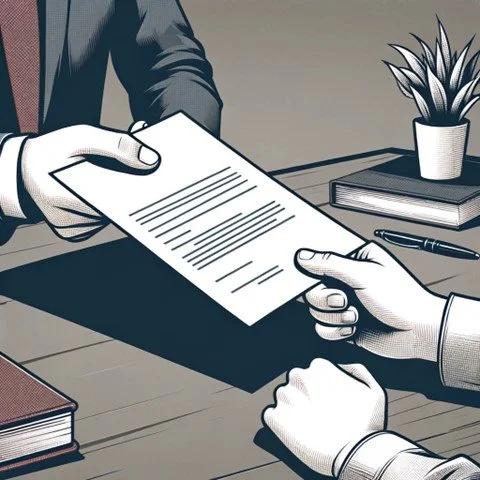Preparing for a resignation meeting can often feel like navigating a minefield blindfolded. It's a pivotal moment that requires tact, professionalism, and a forward-thinking approach. Much like how Oliver Parks tailors its approach to connecting talents with the right roles, preparing for your resignation should be handled with similar care and strategy. Here's an insider guide to resigning with grace, ensuring a smooth transition for both you and your employer.
Understanding the Gravity of Resignation
Resignation is not merely a departure from your current role; it's a significant step in your career trajectory. It speaks volumes about your professional ethos and can impact future opportunities. Thus, it's paramount to approach this process with a clear strategy.
Timing is Everything
Choosing the right time to announce your resignation is crucial. Aim for a period of relative calm within your organisation, avoiding high-stress times such as the end of a financial quarter or in the middle of a major project.
The Resignation Letter: Your First Step
Begin with drafting a concise, respectful resignation letter. This document should highlight your appreciation for the opportunities provided, a brief mention of your reason for leaving (keeping it positive and forward-looking), and your proposed notice period, aligning with company policy.
Preparing for The Meeting
Preparation is key. Anticipate questions your employer might ask, such as your reasons for leaving and how you envision the transition period. Frame your responses positively, focusing on future goals and the professional growth you're seeking.
The Meeting: A Professional Exchange
Approach the meeting with a calm, professional demeanour. Begin by expressing your gratitude for the opportunities and experiences you've gained. Present your resignation letter and be ready to discuss your notice period and how you plan to support the transition. Remember, the goal is to maintain a positive relationship.
Managing the Transition
Offer a plan for your remaining time, including how you'll hand over your responsibilities. This might involve training a colleague, documenting your work, or completing specific projects.
Embrace the Exit Interview
Should your company offer an exit interview, view it as an opportunity to provide constructive feedback and to leave on a positive note. It's a chance to discuss what worked well and what could be improved.
Networking: The Oliver Parks Way
Just as Oliver Parks values the power of networking, maintain connections with your soon-to-be former colleagues. The professional world is smaller than you think, and the relationships you've built can open doors in the future.
Looking Ahead
Your resignation is not just an end but a beginning to the next chapter in your career.View this moment as a stepping stone to new opportunities.
In Summary
Resigning is a significant career move that should be navigated with care, professionalism, and respect for all involved. By preparing thoroughly, choosing the right timing, and handling the process with grace, you can ensure a positive transition for both you and your employer. Remember, the manner in which you resign can leave a lasting impression, so make it count.


